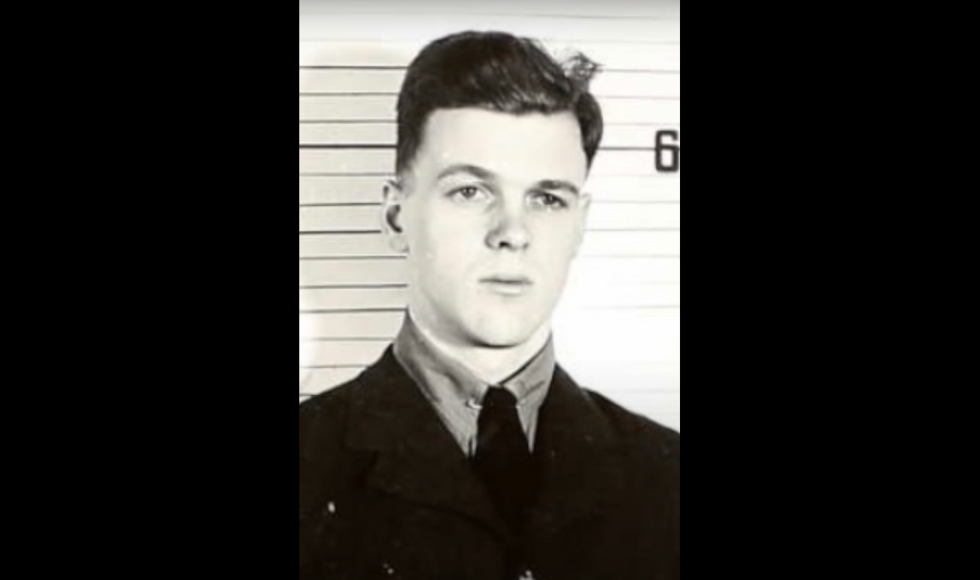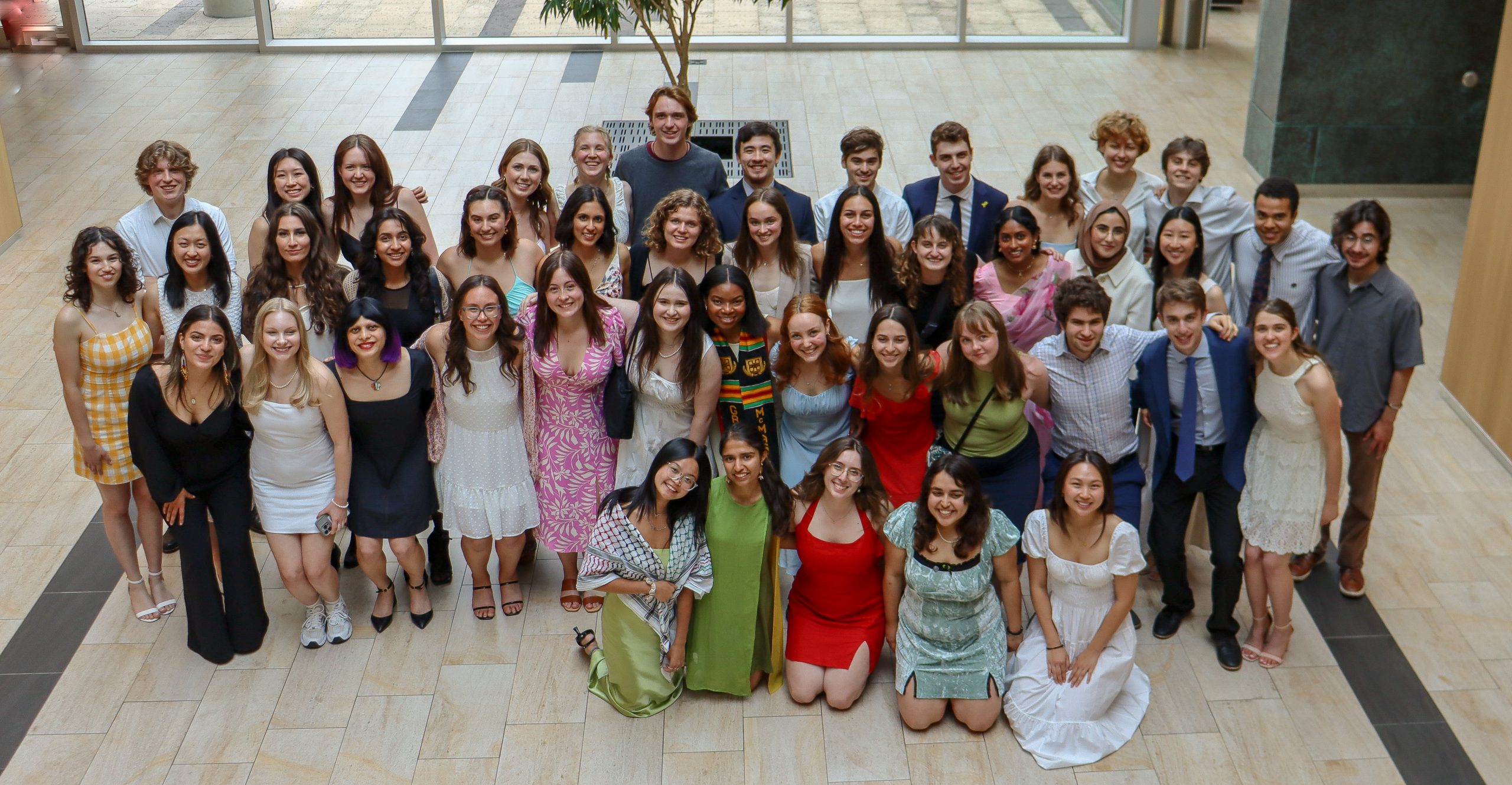Artsci Student brings Hamilton war hero’s history to life

Second World War pilot Robert Davidson died at the age of 21 in a final act of heroism, steering his own crashing plane away from homes in Lignou, France.
Now, a McMaster student who pieced together the story of Davidson’s bravery is making sure it will never be forgotten.
Riley Wilson, a third-year Arts & Science student, was browsing work opportunities on McMaster’s Student Success Centre database when she came across a listing for The Canadian Remembrance Torch.
They were looking for a student with video editing skills who could bring to life the story of a Canadian who died in military service during the First or Second World War.
It was part of Faces to Names, an initiative that tells the stories of the people listed on cenotaphs across Canada, giving their stories meaning and connecting the past with the present.
Wilson wanted to profile someone from Hamilton, and wanted someone who could be relatable to people her age.
“Most of the boys I was reading up on were around my age and even younger than me,” she said. “The fact that Davidson might have grown up on the same streets that many of my friends grew up on might serve to make this story feel relevant.”
She knew Davidson joined the Royal Canadian Air Force and left for England in 1942. He died in June 1944 in France.
The more she dug in, the more interesting his story got.
“I uncovered the story by degrees,” she explained.
As part of her research, she found a Hamilton Spectator article about Davidson being honored with a plaque as well as a blog post about his heroism that included quotes from Lloyd Berryman, who later became the Mayor of Burlington.
She then discovered an article from a French newspaper that had interviewed a boy whose life Davidson had saved.
Her research took her to the McMaster library archives, where she found a copy of a 1946 Toronto Star article that provided the full story.
“Having the whole story was such an aha moment,” she said.
“I got to use a microfilm!”
While training with the RCAF, Davidson encountered Berryman, an old friend. The two spent time together talking about home.
On June 28, 1944, Davidson’s plane was hit.
Coming down over a small commune in France, Davidson intentionally crashed away from a house, saving the life of a little boy.
“French families buried him and put flowers on his grave to show their thanks,” Wilson said. “People would go to his grave to mourn sons whose graves they could not reach. His legacy extends beyond his death.”
“It’s unfathomable to imagine the courage and strength of mind it would take for Robert to act as bravely as he did in the moments before his death. Every minute of research and editing was worth it to bring his story to life.”
Karen Hunter, executive director of The Canadian Remembrance Torch, was impressed with Wilson’s enthusiasm to tackle the challenge of presenting Davidson’s compelling story in 90 seconds.
“She worked through difficult research, discovered previously unrecognized connections, and brought Hamilton’s past into the present,” Hunter said.
“What’s more, her timing couldn’t be better. As the RCAF commemorates its 100th anniversary this year, it’s a perfect opportunity to bring Davidson’s story to life.”
After this experience, Wilson has become interested in researching the lives of more Canadian soldiers, particularly those who served in the Netherlands when it was liberated, because that is where her grandparents are from.
“I hope that people recognize how incredible this story is and see that it’s only one of thousands of stories waiting to be uncovered.”
Experiential Learning, Students


